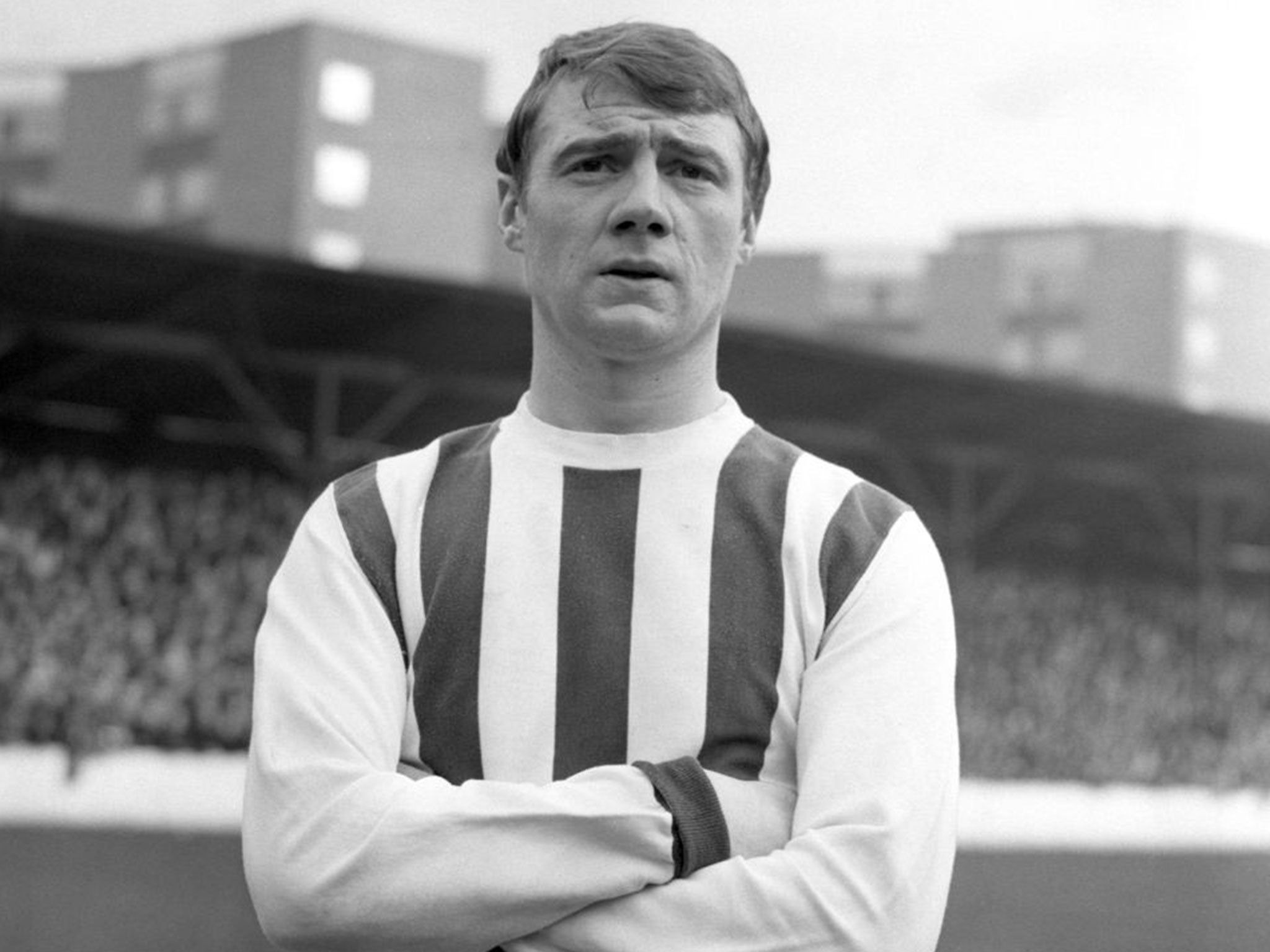Clive Clark: Free-scoring left-winger who helped West Bromwich Albion reach a hat-trick of cup finals in the 1960s

Your support helps us to tell the story
From reproductive rights to climate change to Big Tech, The Independent is on the ground when the story is developing. Whether it's investigating the financials of Elon Musk's pro-Trump PAC or producing our latest documentary, 'The A Word', which shines a light on the American women fighting for reproductive rights, we know how important it is to parse out the facts from the messaging.
At such a critical moment in US history, we need reporters on the ground. Your donation allows us to keep sending journalists to speak to both sides of the story.
The Independent is trusted by Americans across the entire political spectrum. And unlike many other quality news outlets, we choose not to lock Americans out of our reporting and analysis with paywalls. We believe quality journalism should be available to everyone, paid for by those who can afford it.
Your support makes all the difference.Clive Clark was a feisty firecracker of a footballer, a goalscoring left-winger who shone consistently for West Bromwich Albion throughout the 1960s, particularly during their serial cup exploits, and he could consider himself unlucky never to receive a full England cap. Although he collected a winner's medal in both major domestic knock-out competitions, Clark is remembered most vividly for his prolific contribution to the Baggies' ultimately frustrating League Cup campaign of 1966-67.
That season, in which he was the club's top scorer with 29 goals, he became the first man to score in every round, including the brace of smart finishes which gave Albion a two-goal half-time lead against third-tier Queen's Park Rangers in the Wembley final, only for the Rodney Marsh-inspired underdogs to mount a remarkable comeback to win 3-2.
Clark garnered glorious compensation, though, in the previous season's League Cup – he scored in the second leg of the 5-3 aggregate victory over West Ham United, on the last occasion the final was contested over two matches – and in the FA Cup of 1968, in which he was prominent as Everton were defeated 1-0 at Wembley.
The dashing Yorkshireman's game was a potent cocktail of pace, skill and courage. Though not a big man he was effective in aerial combat, never intimidated by the often over-enthusiastic attention of brawny markers, and in front of goal he was a finisher both powerful and clinical: witness his 98 goals in his 350-plus senior outings for West Bromwich.
Clark's first senior club was his local one, Leeds United, whom he joined in January 1958, but he couldn't break through at Elland Road and eight months later he joined QPR, whom he helped to transform from mid-table anonymity into entertaining candidates for promotion from the Third Division before he was snapped up by Albion for a club-record £20,000 in January 1961. He took to top-flight football instantly, succeeding Derek Hogg as the Baggies' regular No 11, and that February earned an England under-23 call-up, helping to beat Wales 2-0 at Goodison Park.
As the decade went on he emerged as a crowd favourite, Hawthorns regulars relishing his unquenchable spirit as much as his abundant ability on the ball. Such was his high-velocity knack of penetrating packed defences that he was frequently double-marked and targeted by wild lunges. But if he was floored, invariably he would bounce back to his feet like a Weeble roly-poly toy, eager to have another tilt at his tormentors.
Such was his form mid-decade that Clark was touted vociferously, from the Midlands at least, for a place in England's 1966 World Cup party, but he lingered on the fringes of selection, failing to make Alf Ramsey's final squad. In truth, he was always behind Liverpool's Peter Thompson in the pecking order. In the event Ramsey picked no specialist outside-left during the tournament, which was won by England and gave birth to Ramsey's so-called "wingless wonders", delivering a blow to Clark's international prospects in the process.
At club level, however, he flourished under successive managers, Jimmy Hagan and Alan Ashman, as part of an enterprising attack which also featured the likes of spearhead Jeff Astle, schemer Bobby Hope and the versatile Tony Brown and John Kaye. In 1963-64 he topped the Hawthorns goal chart with 16, then shared top spot with newcomer Astle a season later, despite a return of only 11.
There followed the cup final trilogy, after which he was cruelly cut down by a tackle on Albion's East African tour in the early summer of 1968, the challenge so reckless that his team-mates were all for pulling out of the game. Thereafter Clark, whose knee was severely damaged, was never quite the same force and in June 1969, still only 28, he returned to QPR, freshly relegated to the second tier. He didn't settle at Loftus Road, however, switching to Preston North End in January 1970, only to experience the trauma of demotion to the Third Division in the spring.
True to his irrepressible nature, Clark – known throughout his career as "Chippy", though even former team-mates can't recall the nickname's origin – was instrumental in the Lancastrians climbing straight back as divisional champions in 1970-71, and he remained at Deepdale for two more terms before enlisting with Fourth Division Southport in July 1973. He didn't linger long at Haig Avenue, going on to serve Telford United, Washington Diplomats, Dallas Tornado, Philadelphia Fury and Skegness Town before laying aside his boots in 1977.
IVAN PONTING
Clive Clark, footballer: born Roundhay, Leeds 19 December 1940; played for Queen's Park Rangers 1958-61 and 1969-70, West Bromwich Albion 1961-69, Preston North End 1970-73, Southport 1973; died 1 May 2014.
Join our commenting forum
Join thought-provoking conversations, follow other Independent readers and see their replies
Comments